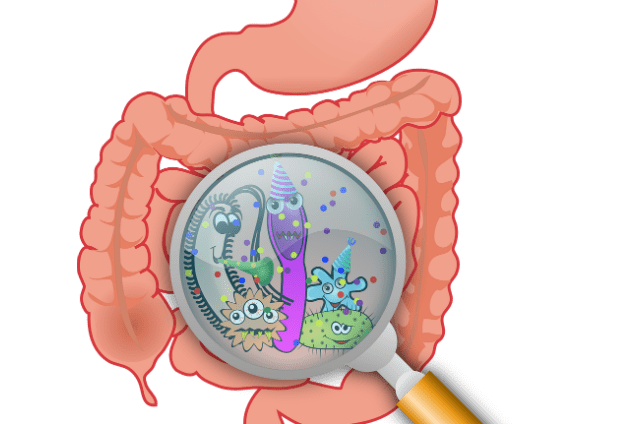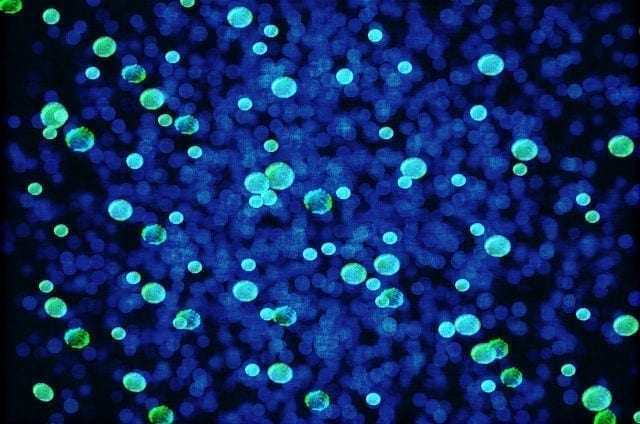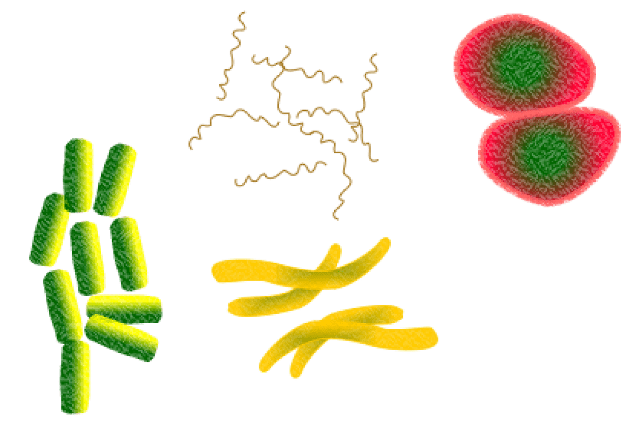3.3 pounds of intestinal bacteria are key to your health
Research indicates that bacteria in our intestinal system have a major impact on our health and well-being.
Your intestines contain some 3.3 pounds of intestinal bacteria.
Most of them are harmless and helpful, but if there in an imbalance in the composition of bacteria and the hazardous bacteria become too many, the risk of serious diseases increase.
This is why it is a good idea to pamper the good bacteria and starve out the bad ones.

What bacteria does for you
The enormous collection of intestinal bacteria is traditionally known as the intestinal flora, but the correct designation is microbiota (small life).
Their job is, among other things, to:
- break down and digest your food
- convert dietary fiber into fatty acids, which are the most important source of nutrition for the cells of the intestine
- keep your intestinal mucosa healthy and dense, preventing harmful substances from penetrating into your blood
- combat pathogenic bacteria
- produce important vitamins
- keep your immune system in balance
There are virtually no intestinal bacteria in the small intestine. This is where we break down and absorb our food.
The greatest concentration of intestinal bacteria resides in the large intestine. The closer you get to the anal orifice, the higher the count of intestinal bacteria.
The importance of intestinal bacteria for your health

Researchers have indeed grown aware of the importance of bacteria for our health.
Your microbiota has an impact on everything, from how healthy you are to how much you weigh and even to what you think.
For example, it has become known that overweight people have a particular microbiota and that children with autism have a different microbiota than children who does not.
The same pattern is observed in people suffering from infectious diseases. Researchers believe that this may be owing to an imbalance in the bacterial composition.
Bacteriologists divide our intestinal bacterial into classes, genera, families, species and subspecies, and research is now underway in full steam to find out what individual species of bacteria do for us and for our health. Manipulations of our microbiota may perhaps become an effective and easy way to treat serious diseases in a long-term perspective.
Get healthier in 14 days by changing your diet
Experiments demonstrate that, i.a., a change in your diet may change the bacterial composition in your intestinal system.
Being two weeks on a diet that consists of fish, poultry, fresh berries, yoghurt, seeds and massive amounts of vegetables may help you grow several different bacteria in the intestinal system. At the same time, you must starve out the bad bacteria by avoid foods such as, for example, candy, large steaks, bread and pasta.
This dietary composition produces a greater diversity in the intestine. Researchers believe this bacterial diversity is important. They feel that a direct correlation has been found between a number of chronic diseases and the lack of diversity in the intestinal microbiota
Mom’s stools as a birthday present
No two people are alike, and the same is valid for the composition of bacteria in our intestine.
When we are fetuses within the womb, we have completely sterile intestines. When born vaginally, we get our first bacteria at birth. By nature, we are as such born with our mouth against our mother’s bottom, which is why we partake both her vaginal and intestinal bacteria.
In addition, researchers have strong reasons to suspect that these bacteria help regulate our immune systems.
Children who are born via Caesarean section does not partake in the good bacteria from their mothers. They mostly are exposed to other people’s skin in the first minutes of their lives. They are therefore at a higher risk of certain disorders that could have been prevented by a healthy microbiota.
Nevertheless, it is almost impossible to see any difference in the microbiota in children born vaginally and children born by Caesarean section by the age of seven.

Your personal bacterial cocktail
After the first year, breast milk and bacteria are of less importance, and by the age of three, the child has created his or her own microbiota. This happens automatically when the child chews on a shoe or kisses the neighbors’ dog. Bacteria from the surrounding environments and food find their way to the child’s intestines and help create individual microbiota.
No one knows what the optimal bacterial cocktail is, but experts believe, as mentioned above, that the key to good health is having many different types of bacteria or, in other words, that what is of importance is a great diversity.
By Christa Zenobie Dahl
Source:
Giulia Enders, Gut: The inside Story of Our Body’s Most Underrated Organ
Irene Brøndum, Majbritt L. Engell and professor Oluf Borbye Pedersen, Tarme i topform – spis dig til sundhed, energi og velvære
 Made in Scandinavia
Made in Scandinavia
